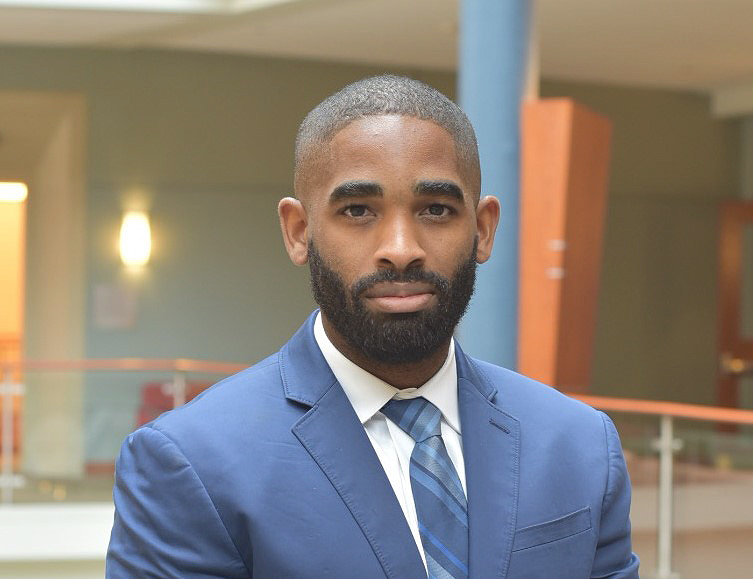For Adam Davis, choosing an MBA program was fairly easy. Not only was Georgetown University’s McDonough School of Business one of the top-ranked schools in the country, but also, he says, “McDonough walks the walk.”
McDonough’s mission is indeed admirable: “To build global business knowledge and inspire ethical leaders to serve the common good.” There’s also cura personalis, a Jesuit concept that means “care of the whole person,” a major theme in Georgetown’s culture. Both served as solid ground for Davis’s volunteer work on a mock-interview program to prep citizens who were returning to the workforce after incarceration. Getting work after incarceration is tough; unemployment runs 27 percent.
Raised in Maryland, Davis has both community action and numbers in his blood. Early on, he followed his mother’s footsteps and worked for her accounting firm. The firm sponsored monthly dinners with lively themes, such as “May the Fourth Be With You,” for children undergoing experimental medical treatments. “I enjoyed the family business,” he says. Looking forward, however, he wanted to get away from public accounting.
Now, after McDonough and a McGowan fellowship, he is pleased to find another organization that he sees as walking the walk—JPMorgan Chase, where he’ll advise individuals with high net worth. It’s an interesting time to be at Chase, he says, as the bank wrangles with and addresses the nature of wealth inequality. “Most Americans’ wealth is in their homes,” Davis explains. When banks, corporations, and governments stymied home ownership among people of color, they hindered the growth of wealth. For generations, that handicap undermined important wealth-building opportunities for Black families: the access to credit for starting a business or buying home, to a safe and healthy neighborhood, to a good high school education, and to college.
In an effort to strengthen financial health among Black families, Chase launched a national program called Advancing Black Pathways. The program has three prongs, aimed at education, careers, and expanding access to capital for small businesses and homeownership. A second program is called Advancing Black Entrepreneurs. “Between these two programs—it’s a huge commitment,” Davis says, “and it’s because of a principled leader like Jamie Dimon.”
Davis met Dimon, JPMorgan Chase CEO, at the one-year anniversary for the Advancing programs. One topic they could have discussed if only they’d had the time: another separate effort aimed at helping formerly incarcerated people overcome barriers and gain employment—at JPMorgan Chase.

